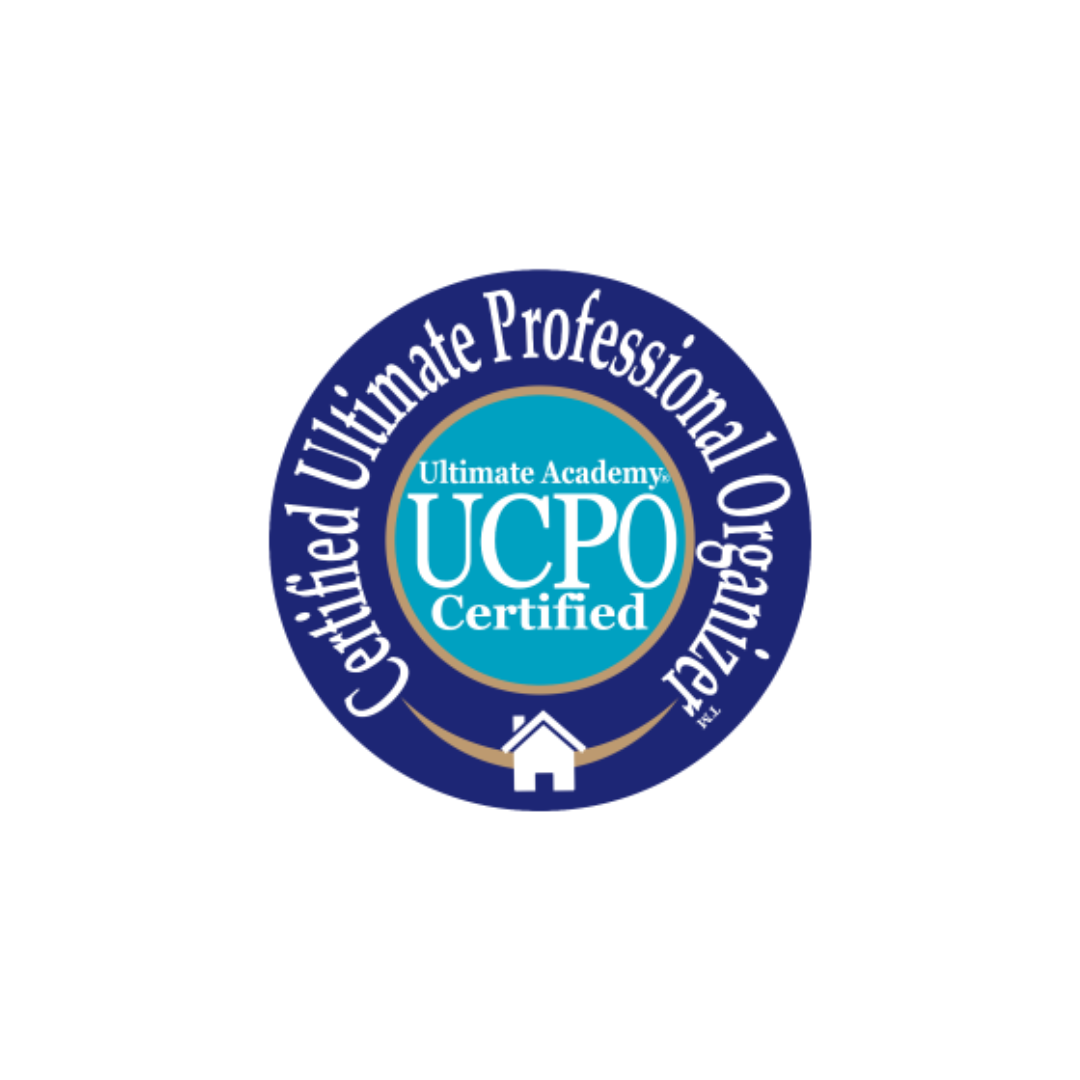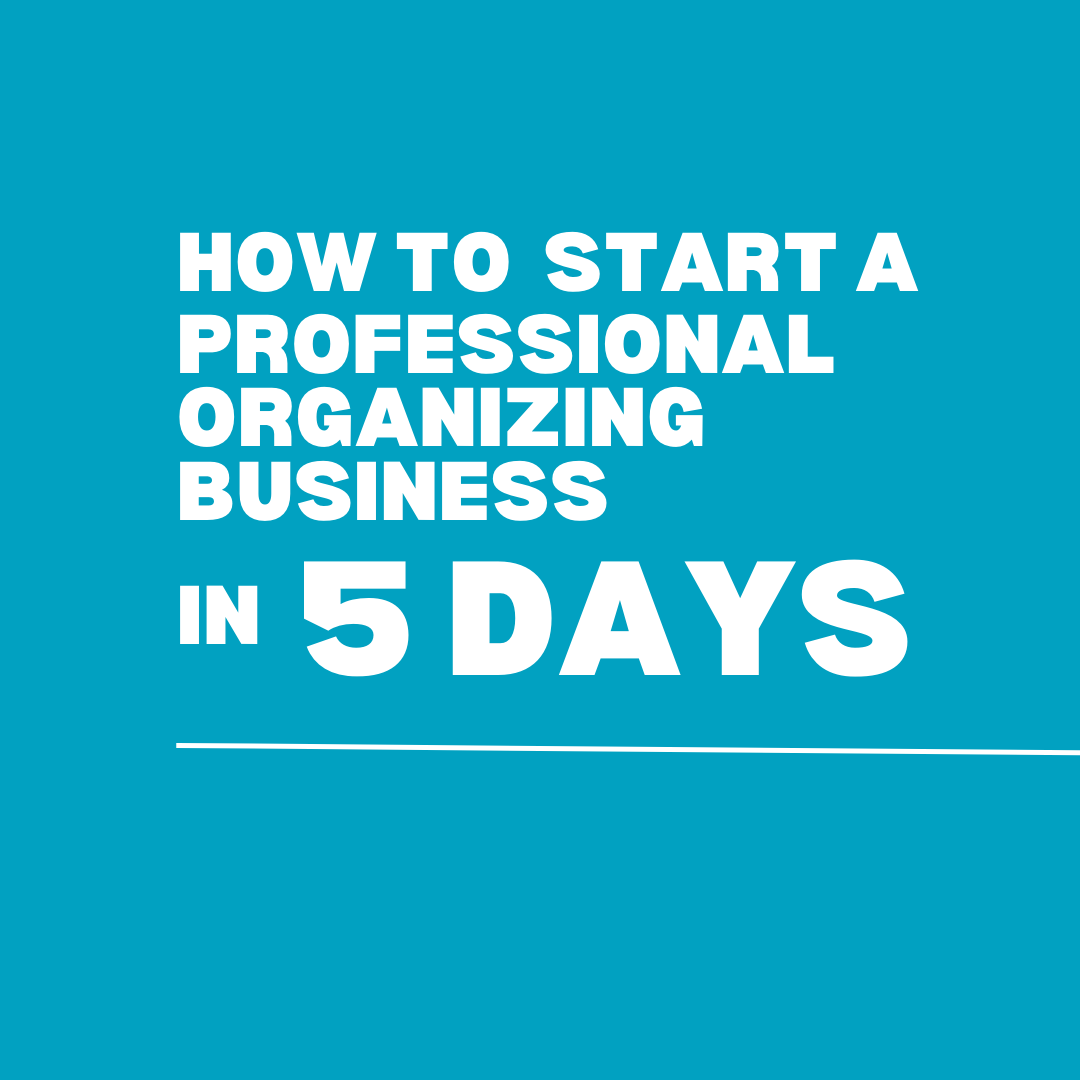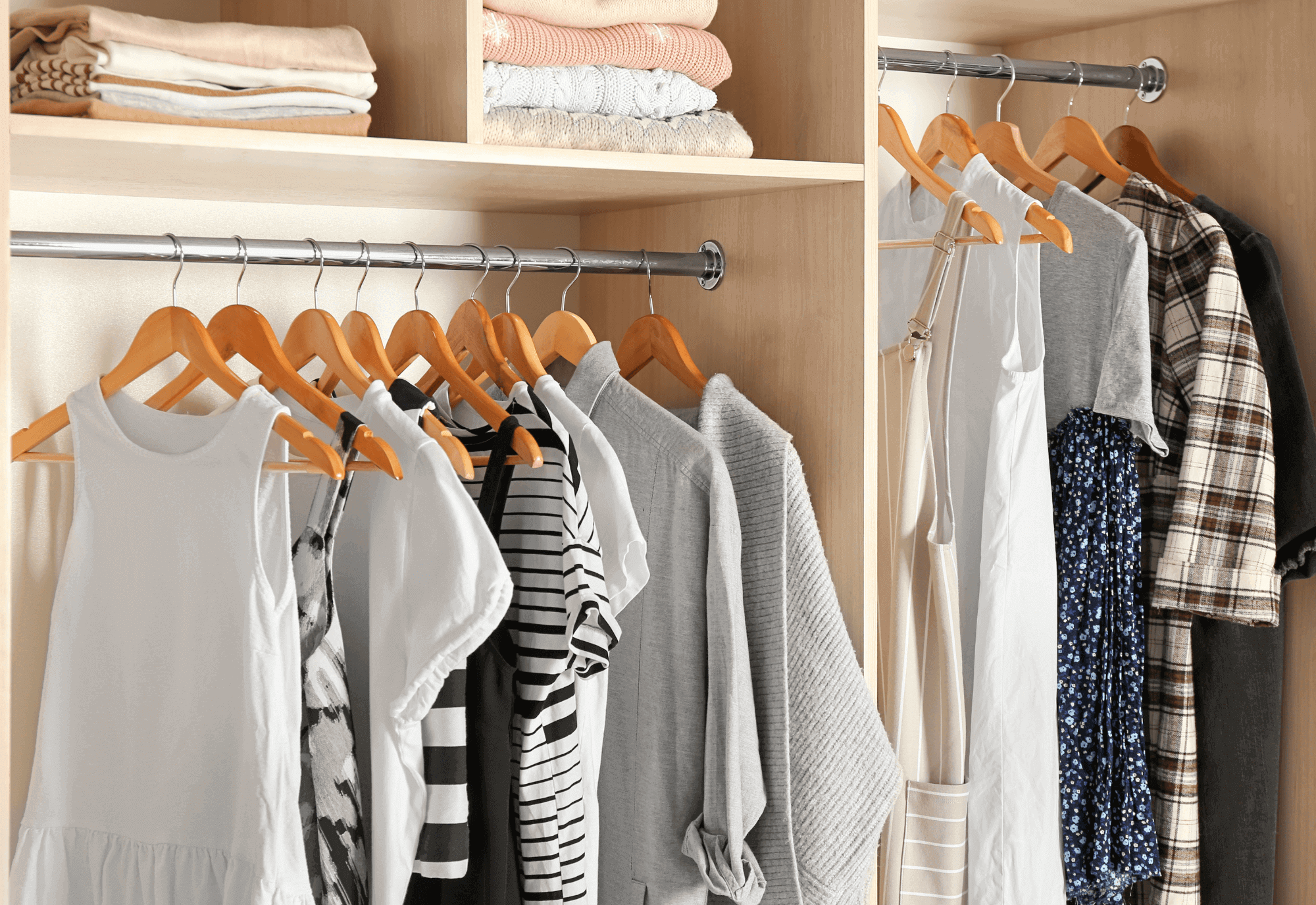How to Start a
Cleaning Business
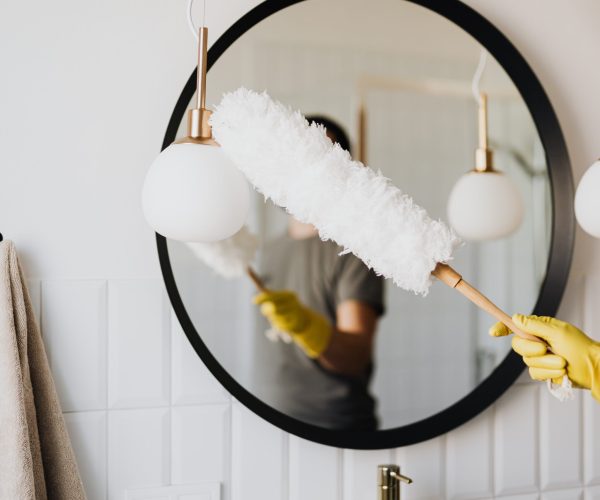
Ever stared at a smudged window or a dusty carpet and thought, “I could turn this mess into money”? Starting your own cleaning business is an appealing prospect for many: it’s cost-effective, scalable, and there’s always dirt to clean up! But how do you navigate from dreaming about sparkling surfaces to actually running the show and starting a cleaning company?
How to start a cleaning business, like any other venture, requires careful planning. This includes selecting the services to offer, registering your enterprise with an appropriate name and structure (should it be a sole proprietorship or an LLC?), and obtaining licenses in line with local regulations. You’ll also need to consider the supplies and equipment required. But don’t worry; this article will provide you with a comprehensive understanding of how to start a cleaning business.
Choosing the Right Cleaning Services
If you’re thinking of starting a cleaning business, one key decision is selecting which services to offer. This depends on market needs and gaps.
Identifying Market Needs and Gaps
Starting a cleaning company requires a thorough understanding of your potential customers’ needs. This is crucial when considering how to start a cleaning company that’s tailored to meet specific demands. For instance, while some may be searching for basic housekeeping services, others might require deep or specialized cleanings like window or carpet treatments.
To effectively cater to these varied demands, conduct a comprehensive study of competitors’ websites related to your cleaning company. Additionally, reading reviews on platforms like Yelp and Google can offer valuable insights. It’s also important to recognize service gaps in the different areas you want to work in. Each area (i.e., each service area) can differ in its cleaning needs, so diligent research is imperative. The spectrum of cleaning services is vast, ranging from basic cleaning tasks to specialized ones like new home construction cleanup.
Your selection of services will play a pivotal role in defining your cleaning company’s client base. This could be busy families in need of residential cleaners, businesses in search of commercial janitorial services, or homeowners seeking specialized equipment cleanups post-renovations.
To ensure your cleaning company remains competitive, it’s vital to stay updated on emerging trends. This could encompass the rising use of green cleaning products or an augmented demand for sanitization stemming from public health concerns. By selecting the right mix of offerings, you don’t just draw in more customers but also establish a robust foundation for future growth and expansion of your cleaning company.
Below are some cleaning services to consider offering:
Basic Cleaning: Most homes and businesses need routine cleaning, and this service encompasses everyday tasks like dusting, mopping, vacuuming, and general tidying up. As a foundational service, it’s usually in high demand.
Deep Cleaning: Going a step beyond, deep cleaning targets areas often missed in regular cleanups, like behind appliances, under furniture, and inside air ducts. Offering this can set your business apart, catering to clients who require a thorough cleanup periodically.
Specialized Floor Care: Different floor types, like hardwood, tile, or marble, require specialized cleaning and care to maintain their luster and longevity.
Pressure Washing: For outdoor areas, such as driveways, patios, decks, and building exteriors, pressure washing can effectively remove dirt, mold, and mildew.
Hoarding Cleanup: Specialized service catering to situations where excessive items have accumulated over time, often requiring a combination of cleaning, organization, and waste removal.
Event Clean-Up: After parties, weddings, corporate events, or festivals, there’s a need for thorough cleanup services. This could range from small gatherings to large-scale events.
Upholstery Cleaning: Furniture gathers dust, stains, and odors over time. Offering upholstery cleaning for sofas, chairs, and other furniture can be a valuable service.
Post-construction Cleaning: After construction or renovation, properties need thorough cleaning to remove dust, debris, and construction residues. This service can be intensive and might require specialized tools.
Carpet Cleaning: Specialized equipment is used to deep clean carpets, removing stains, dirt, and allergens. This service can be especially popular in households with pets or children, as well as commercial spaces.
Window Cleaning: Both residential and commercial properties need window cleaning. This can range from ground-level windows to high-rises. Special equipment and safety measures are necessary for taller buildings.
Registering a Business Name and Structure
Starting your cleaning business requires you to nail down a unique business name. It’s not just about creativity, but also about reflecting your brand identity and the services you offer.
Picking out the right structure for your company is equally important. Picking the right business form can be advantageous, with options such as a single proprietorship, collaboration, or LLC.
Selecting a Unique Business Name
To start things off on the right foot, make sure to register your business name properly. Head over to USPTO trademark registration. Your business’s name is its first impression. Ensure it’s relevant to your services, easy to remember, and unique to stand out in the market. When looking to start a cleaning and organizing business, ensure your name reflects both aspects of cleaning and organizing.
For example, consider the name “Neat & Complete Cleaning Organizers“. This name was crafted with the intention of conveying a comprehensive service offering in both cleaning and organizing.
Here’s a breakdown of the name:
Neat: This word is often used to describe tidiness and orderliness. It has a double implication in this context. While it primarily suggests organizing services, it can also hint at the end result of a cleaning job – a neat space.
Complete: This term implies that the business doesn’t just do a part of the job, but ensures everything is done thoroughly. “Complete” can be seen as an assurance of comprehensiveness in services. So, whether it’s cleaning a room or organizing a closet, the business promises a full, complete service.
Cleaning: Explicitly mentioning “cleaning” leaves no doubt about this being one of the core services. It’s straightforward and resonates with potential customers looking for cleaning services.
Organizers: By using the term “organizers”, it clearly communicates that the business isn’t limited to cleaning; it also specializes in organizing spaces, thereby offering a dual service.
The name as a whole suggests a one-stop solution for both cleaning and organizing needs. Potential clients will understand that this business can help them both clean up messes and put things in a structured, orderly manner. It’s a name that offers clarity while being catchy and memorable.
Choosing Your Business Structure
Picking the right business setup is crucial. If you’re on your own, you might consider a sole proprietorship. But if you’re working with others, partnerships or LLCs could be a better fit. Bigger businesses often choose to become corporations. Each choice has different tax benefits, responsibilities, and paperwork. You can learn more on websites like The U.S. Small Business Administration (SBA).
Licensing Your Cleaning Business
Starting a cleaning business means you need the right licenses. Think of a license as your company’s ID, showing you’re official and can be trusted.
Different places have different rules. In the U.S., most places need at least a business license to get going. If your business uses strong chemicals or offers special services, you might need more permits.
Each state has its own rules, so it’s important to check what’s needed where you are. But don’t worry, getting started is manageable.
For more details:
Check local rules: U.S. Small Business Administration (SBA)
Learn about licenses in your state: State Business License Offices
Insuring Your Cleaning Business
Business insurance is essential for any cleaning company. Imagine a scenario where a small accident becomes a significant liability; that’s where the right insurance steps in.
Firstly, there’s general liability insurance. This is your first line of defense, covering claims of bodily injuries or property damage that might happen while you’re cleaning.
If you have employees, workers’ compensation is a must. This covers medical bills or lost wages if an employee gets hurt on the job.
Health insurance is vital, especially if you have a team. It ensures that you and your crew have medical coverage in case of illnesses.
If your business uses vehicles, vehicle insurance is non-negotiable. This covers damages from accidents involving your business vehicles.
As your business scales, consider employment practices liability insurance. It protects against claims like discrimination, wrongful termination, or harassment.
A business owners’ policy (BOP) can be a smart choice too. Think of it as a combo meal: it bundles general liability and commercial property insurance, often at a more affordable rate.
Lastly, consider commercial property insurance if you have a physical office or store cleaning supplies. It’ll cover damages to your property from events like fires or theft.
In a nutshell: insuring your cleaning business safeguards you, your employees, and your assets. Plus, it assures clients that they’re in safe hands. It’s more than just a backup plan—it’s smart business.
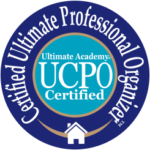
Procuring Cleaning Supplies and Equipment
Starting a cleaning business, especially in the residential cleaning sector, requires careful preparation and the right toolkit. Cleaning homes is an intimate service, and homeowners expect nothing short of excellence. Therefore, understanding how to start a cleaning business with the right cleaning equipment is crucial.
Investing in Specialized Equipment
Beyond the basics, specialized tasks require specialized tools. For example, if you’re offering deep-cleaning services for floors, you’ll need equipment like floor waxers. Such machinery is essential for tasks like stripping and re-waxing floors. However, remember that these machines often come with a learning curve. Ensure your team gets adequate training to use them safely and effectively.
The cleaning products you choose can greatly influence your business’s reputation. If you’re cleaning homes with children, it’s imperative to opt for child-safe products. This not only ensures safety but also demonstrates your business’s commitment to client well-being.
It might be tempting to cut corners and purchase cheaper cleaning equipment initially, but this can be a false economy. Investing in high-quality, durable equipment from the start means less frequent replacements and more consistent results. Your clients will notice the difference.
Below are examples of specialized equipment:
- Vacuum cleaners (upright, backpack, and handheld)
- Carpet steam cleaners
- Floor waxing and polishing machines
- Power washers
- Window cleaning extensions and squeegees
- Air blowers for drying carpets or flooring
- Scrubbing machines for tiles and grouts
- Ladders (various sizes for different tasks)
Here are some basic supplies to consider purchasing:
- Brooms (both soft and hard bristle)
- Mops (wet and dry, microfiber)
- Trash bags and cans
- Buckets with wringers
- Sponges and scouring pads
- Dustpans and brushes
- Microfiber cloths and rags
- Feather dusters
- Toilet brushes and holders
Here are some cleaning solutions to consider purchasing:
- All-purpose cleaner
- Glass and window cleaner
- Bathroom cleaner (for tiles, grout, and toilets)
- Floor cleaner (separate varieties for hardwood, tile, and carpet)
- Disinfectants and sanitizers
- Degreasers
- Oven and grill cleaner
- Carpet cleaning solutions
- Upholstery cleaner
- Wood and furniture polish
- Feather dusters
- Toilet brushes and holders
Don't forget your protective equipment! Always purchase the safety gear below:
- Gloves (latex and heavy-duty)
- Safety goggles
- Face masks or respirators (especially if using strong chemicals)
- Non-slip shoes or shoe covers
- Earplugs (if using loud machinery)
- First aid kit
Pricing Your Cleaning Services
When figuring out how to start a cleaning business, one of the essential aspects to nail down is determining the proper cost for your cleaning services. It’s a delicate balance: you want to set competitive rates to attract clients, but also need to ensure profitability to sustain and grow your business.
Setting Competitive Rates
When figuring out how to start a cleaning business, one of the most crucial aspects to consider is pricing. Starting and maintaining a successful cleaning business requires a strategic approach to this. One of the foundational steps is understanding your local market dynamics. Surveying competitors, gauging what they charge, and understanding the aspects of their services can provide valuable insights. Factor in your operational costs, such as salaries, cost of cleaning products, and other overheads, as this will influence your pricing strategy.
When determining your prices, consider aspects such as the square footage and type of cleaning required. For instance, larger spaces or deep-cleaning jobs will naturally demand higher charges due to the extra time and resources involved. Similarly, specialized or niche services might warrant premium pricing because of their unique requirements or specialized equipment.
A useful guideline to help you navigate pricing is to consult resources like Jobber, which offers insights into local business charging practices. Keeping your prices in sync with market trends, while also carving out a competitive edge, is essential.
Additionally, accuracy in estimating costs cannot be stressed enough. If you underestimate, you risk incurring losses; however, overestimating might deter potential clients seeking affordable services. Therefore, it’s crucial to strike a balance where your prices mirror both market demands and your business’s operational expenses.
In terms of pricing models, you have a few options to choose from:
Hourly Rates: These are most suitable for varied tasks or for engagements with first-time clients where the exact scope of work might be uncertain.
Flat Rates: This model is best for services where you can easily anticipate the time and resources required.
Room Rates: This strategy works well for residential or commercial spaces, where charging based on the number of rooms cleaned makes the most sense.
Specialty Service Rates: As mentioned earlier, if you’re offering niche cleaning services, charging a premium might be justified given the specialized skills or equipment needed.
In summary, setting up an effective pricing strategy is a delicate balancing act, reflecting both market conditions and your business’s internal costs. Make informed decisions and regularly revisit your pricing models to ensure long-term success and uncompromised service quality.
Marketing Your Cleaning Business
When figuring out how to start a cleaning business, one key factor to focus on is a strong marketing strategy. This can make or break your success. Building a solid online presence is essential in this digital age.
A cleaning business website acts as the face of your company. It’s not just about having an attractive design, but it needs to be user-friendly and mobile-optimized too. Why? Because more than half of global web traffic comes from mobile devices. If you’re looking to attract customers consistently, ensuring that your cleaning business website stands out is paramount.
When diving into how to start a cleaning business, understanding the importance of social media platforms is crucial. They offer an avenue to connect with potential clients, showcase your services, and even share tips on maintaining cleanliness at home or office. But remember, to secure repeat customers and build a loyal client base, consistency in your online engagement is essential; regularly posting relevant content keeps you connected with existing customers while attracting new ones.
Promoting Through Local Listings
Taking advantage of local listings like Google Business can significantly boost your cleaning service’s reach locally. Google My Business allows people searching for cleaning businesses near them to find yours easily. By leveraging such platforms, you become visible exactly where needed – right in front of potential customers, increasing your chances to attract customers and turn them into repeat clients.
Conclusion
When you’re figuring out how to start a cleaning business, understanding the challenges is the first step. As you start cleaning, choosing the right services to offer is crucial. Diversifying the services you offer allows you to tap into various segments of the cleaning industry, helping you attract a wider range of clients.
The journey of how to start a cleaning business involves several key decisions. For instance, picking the right name and business structure is not just about branding but has operational implications. Additionally, you should be aware of local licensing rules which are there to guide and ensure your business operates legally and smoothly.
Insurance is another vital aspect to consider; it safeguards your business from potential mishaps. Furthermore, the cleaning supplies you opt for, especially eco-friendly ones, can become a reflection of your business values.
In the end, while pricing your services, ensuring they are competitive yet profitable is essential. The road to establishing a cleaning business can be demanding, but with these insights, you’re well-equipped to navigate the challenges of the cleaning industry successfully.
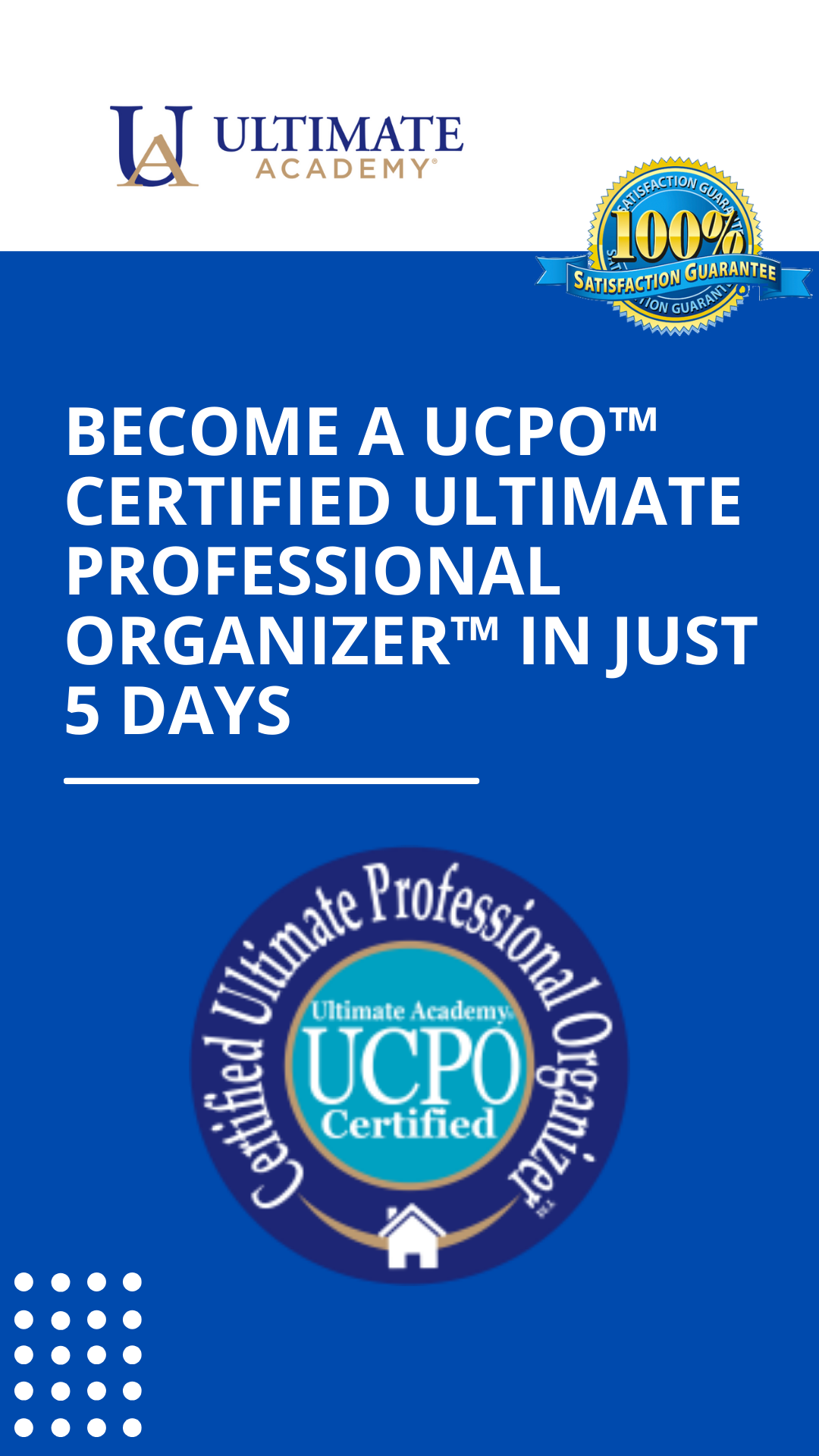
Learn About our Professional Organizing Certification
